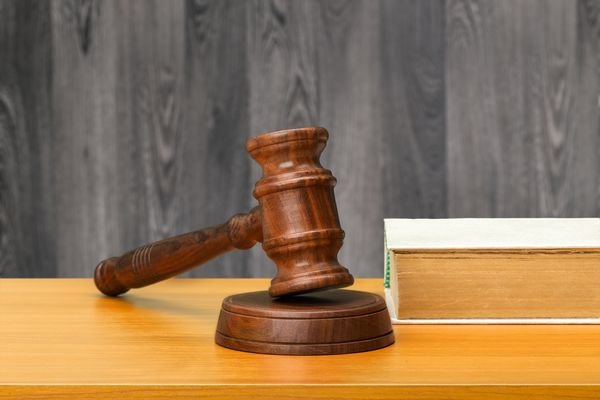Why Does the Suez Canal Keep Getting Stuck?
The Suez Canal is one of the most important waterways in the world. It connects the Mediterranean Sea to

The Suez Canal is one of the most important waterways in the world. It connects the Mediterranean Sea to the Red Sea.
This allows ships to travel between Europe and Asia without going around the southern tip of Africa. The canal helps with global trade. Around 12% of the world’s goods pass through it each year.
But, this important route has had blockages over the years. These blockages have caused serious disruptions.
A Short History of Suez Canal Blockages
Since the Suez Canal opened in 1869, it has been blocked many times. Some of these blockages were caused by political conflicts, while others were accidents.
For example, in 1956, during the Suez Crisis, the canal was closed for months due to political issues. In more recent times, accidents have caused major disruptions.
Why Does the Suez Canal Get Blocked Often?
Several reasons explain why the canal gets blocked so often. Below are the main causes.
The Size of Ships
One big reason for blockages is that modern cargo ships are getting larger. Shipping companies are building bigger ships to carry more goods.
These “mega-ships” can be over 400 meters long. Even though the canal has been made wider, these large ships still have problems navigating the narrow waterway. If strong winds or technical issues happen, these ships can easily go off course and block the canal.
Weather Conditions
The canal is located in a place where the weather is often unpredictable. Strong winds and sandstorms are common, especially during certain times of the year.
In March 2021, the Ever Given, one of the largest container ships, was blown off course by strong winds. This caused the ship to get stuck in the canal for six days. As, causing massive delays in global tradesman Mistakes.
Even though technology helps guide ships, human decisions are still important. Sometimes, blockages happen because of human errors.
Things like moving too fast, miscommunication, or using navigation systems wrong can lead to accidents. Since many ships pass through the canal every day, even a small mistake can cause a major problem.
Technical Issues
Mechanical problems on ships, like engine breakdowns or steering issues, can also block the canal.
When a ship has these problems, it can lose control and get stuck. If this happens, the canal gets blocked, and other ships are delayed. Fixing these problems quickly is important to avoid bigger delays.

How Suez Canal Blockages Affect the Economy
When the Suez Canal gets blocked, the effects are felt all over the world. Ships have to wait or take longer routes, which increases travel time.
This delay can cause shortages of goods, higher prices, and slower economic activity. During the Ever Given blockage, it was estimated that $9.6 billion worth of goods were delayed each day.
These kinds of disruptions have a major impact on global trade.
Alternatives to the Suez Canal
When the Suez Canal is blocked, ships must take longer routes. One such route is around the Cape of Good Hope at the southern tip of Africa.
This adds thousands of miles to the journey and takes more time. It also results in higher fuel costs. While this is an option, it is not sustainable for long-term use because it is expensive and slow.
How Technology Can Help Prevent Future Blockages
Technology advancements are being used to prevent future blockages in the Suez Canal. Ships now have better navigation tools and autopilot systems to help reduce human mistakes.
The canal authorities are also expanding and modernizing the waterway to handle larger ships better. Satellite tracking systems can help monitor traffic in the canal. This helps manage congestion and prevent accidents.
Why Not Make the Canal Bigger?
Many people wonder why the canal isn’t made even larger to reduce the risk of blockages. The Suez Canal Authority has already expanded the canal by adding a second lane in some areas.
However, expanding the canal more is difficult because of the surrounding landscape and the high cost. Additionally, even if the canal is expanded, blockages might still happen due to weather and human errors.
Environmental Issues
Another problem is the environmental impact of blockages. When ships have to wait or take longer routes, they use more fuel.
This increases carbon emissions, which affects global efforts to fight climate change. As ships get larger, and blockages happen more, the environmental impact of global trade might increase too.
How Do They Free Stuck Ships?
Freeing a stuck ship is a complicated task. It requires coordination and special equipment.
For big ships like the Ever Given, the process includes dredging, which is removing sand and mud around the ship. Tugboats are also used to pull the ship free.
In some cases, the ship’s cargo has to be removed to make the ship lighter. This can take days or weeks, depending on how bad the blockage is.

Impact on Global Shipping
A blocked canal doesn’t just affect the ships stuck there. It causes problems for the entire global supply chain.
If ships are delayed, products like electronics and food become harder to get. Shipping costs rise, and consumers might have to pay higher prices or face shortages. This is a growing concern, especially with supply chains already strained due to events like the COVID-19 pandemic.
Why Do Blockages Keep Happening?
Despite efforts to prevent it, the Suez Canal keeps facing challenges. The combination of larger ships, unpredictable weather, and human errors makes blockages likely.
The canal is still a key part of global trade. But as shipping demand grows and ships get larger, blockages may continue to happen.
What’s Next for the Suez Canal?
As global trade continues to grow, the Suez Canal will stay important for the world’s shipping network. However, the risk of blockages will always be there.
More investment in technology and infrastructure is needed to stop future disruptions. Shipping companies may also need to rethink how big their ships should be, to ensure they can safely pass through narrow waterways like the Suez Canal.









